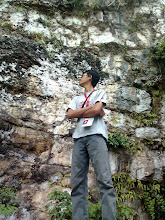United Nations (UN) is
an international organization
whose stated aims are facilitating cooperation in international law,
international security, economic development, social progress,
human rights, and achievement of world peace.
The organization has six principal organs: the General Assembly
(the main deliberative assembly); the Security Council
(for deciding certain resolutions for peace and security); the Economic and Social Council
(for assisting in promoting international economic and social cooperation and
development); the Secretariat (for providing
studies, information, and facilities needed by the UN); the International Court of Justice
(the primary judicial organ); and the United Nations Trusteeship Council
(which is currently inactive). Other prominent UN System agencies include the World Health Organization
(WHO), the World Food Programme (WFP) and United Nations Children's Fund
(UNICEF). The UN's most prominent position is Secretary-General
which has been held by Ban Ki-moon of South Korea
since 2007 (Wikipedia, 2012).
As an international organization "world peace maker", the UN has an important role in regulating many things. Each department in charge of the United Nations has been devoted to one area where he focused on those categories. As an example, WHO is focusing on the development of world health, UNICEF with the "funding children" her, UNESCO is always paying attention to the culture of the nations of the world, and so forth. To that end, the UN has many policies to run its programs. One of the UN program that is being discussed is sustainable development.
Generally, sustainable development is a pattern of economic growth in which resource use aims to meet human needs while
preserving the environment so that these needs can be met not only
in the present, but also for generations to come (Wikipedia, 2012).
In the structure of
organization in UN, sustainable development is one of division in UN DESA
(United Nations Department of Economic and Social Affairs), a part of UN
Secretary. This department works to help countries
around the world in preparing the agenda and policy in facing the challenges of
economic, social and environmental.
Sustainable development is a program that has been long initiated by the United Nations since 20 years ago, precisely in 1992 when the ongoing UN world conference in Rio de Janeiro, Brazil. At that time, the world's nations have agreed that global development should have a continuity or a continuous nature, but still must consider other factors that may be a negative impact of global development. Therefore, in June this year ago, the United Nations re-establish the conference, better known as the “Rio +20 Conference” with theme of Sustainable Development in Rio de Janeiro. The conference has three main focus in the discussion, which has renewed political commitments on sustainable development, identifying the gap between the development and implementation progress in achieving the initial commitment, and overcome new challenges are constantly evolving.
Actually, sustainable development does not only concentrate
on environmental issues. More than that, the scope
of sustainable development includes three policies: economic development,
social development and environmental protection. Three of them have a
relationship each other so that could make sustainability. This is the scheme of sustainable development: at the
confluence of three preoccupations.
From the scheme, we
could understand that three most important components of development: economic,
social, and environmental, have a strong relationship each other. We couldn’t
separate one of them, because they have to runs in balanced. No wonder if every
policy in a nation should notice the three components. That’s the role of the United Nations is needed as in the
manufacture of harmonizing policies in every country in the world.
As for the UN Division for Sustainable
Development has listed some of the scope of the following as part of
Sustainable Development,
such as:
· Agriculture
· Atmospheric
· Biodiversity
· Biotechnology
· Capacity Building
· Climate Change
· Consumption and Production
· Demography
· Desertification and Drought
· Reduction and Disaster Management
· Education and Awareness
· Energy
· Finance
· Forest,
etc.
Sustainable development
program essentially is an ambiguous concept. This
is caused by the tug of interests between nature interests and human interests. Even we know, both of these are part of
inter-related, but they’re often being the problems caused by the human ego.
That’s why we could not measure about the progress of sustainable development
program correctly, because there is not a real parameter that could be used as
an indicator.
Population of peoples is the important part or we could say
as the central point in sustainable development, because the true role of
population is as a subject and object of this program. Large population with
rapid growth, but low quality, will slow to achieve the ideal conditions
between quantity and quality, more over with the condition of limited capacity,
in natural and environment sector. Therefore, to realize sustainable
development in a country, the quality of population components is required. From it, a nation is to
be able to process and manage natural resources properly, precise, efficient,
and optimally, while maintaining environmental sustainability. Hopefully there could
be a condition when the population with carrying capacity of nature and
capacity of the environment are balanced and harmony each other.
Definitely our hopes
below couldn’t be happened if there is not an international organization
manages all the needs of all countries in the world. At least, United Nations
could unite all countries to walk in line together, so that sustainable
development could be achieved in a few years later, for a better world.
***
References
(All references were accessed on July, 19th
2012)
ps: this essay was made for LIMUN (London International Model United Nations) 2012 Delegates Selection of Diponegoro University


